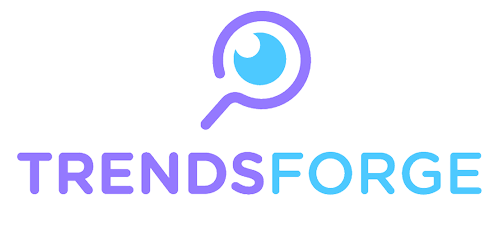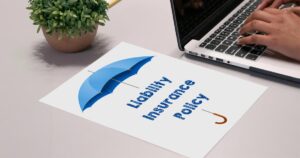Avoid These Costly Mistakes While Repaying Credit Card Debt
Watching your credit card balances increase might cause a lot of anxiety about getting things under control. But don’t worry, there are numerous solutions available to help you reduce your debt to a manageable amount. Knowing which mistakes to avoid is an important part of tackling this issue.

We have produced a list of the top ten mistakes to avoid when paying off credit card debt. But don’t worry, we’re also here to offer some constructive suggestions on the best way forward. You have what it takes to overcome your debt; it’s just a matter of approach.
Starting on the Right Foot: Create a Solid Plan.
The fact that you’re here, looking into the do’s and don’ts of credit card debt repayment, speaks volumes. You’re already primed to devise a strategy. That is the first step you should take—at least mentally—to prepare yourself for the voyage ahead. After all, sticking to a plan, even if it’s imperfect, is significantly easier than winging it.
Another important factor to remember is that it is acceptable to have committed any of these mistakes in the past. Everyone makes mistakes and learns from them. What really counts is how you use those lessons in the future. You can also share your newly discovered wisdom with friends and family who may be struggling with debt. Maybe you might help each other with the debt repayment process!
Pitfalls to Avoid When Paying Off Credit Card Debt
Without further ado, here are the mistakes you should avoid while dealing with credit card debt. While credit cards are convenient, they may also trap you in a web of high-interest debt if misused. If you’ve made any of these mistakes, don’t be hard on yourself; it happens to the best of us. Instead, use this chance to learn from your mistakes and build the road for a more financially savvy future.
-
Failure to Understand the Consequences of Debt
Many people reflexively categorize debt as “bad,” but the truth is more nuanced. Debt can be advantageous or damaging, depending on how it is handled. However, failing to understand why you’re trying to get rid of debt may stymie your efforts from the start. While paying off a low-interest mortgage gradually may be wise, allowing high-interest credit card debt to accumulate is like carrying dead weight.
“Having a clear grasp of your motivations will serve as a beacon during challenging times and unexpected setbacks,” according to EverythingFinance. A well-defined approach will act as a compass while you navigate the treacherous terrain of debt repayment. Challenges will emerge, but with motivation, you will continue and eventually succeed.
-
Sticking to Old Spending Habits
One of the most difficult challenges for people who are in debt is slowing down their spending. It’s easy to imagine that you can keep your existing spending habits while reducing debt. However, this method only feeds the debt cycle, potentially increasing your financial situation. Repaying debt involves a fundamental change in your spending habits.
-
Succumbing to the Temptation of More Credit Cards
While having a credit card might be useful for unexpected needs, applying for more cards when you already have balances is a bad idea. It’s tempting to supplement your emergency fund with more credit cards, but doing so may push you deeper into debt.
-
Prioritizing Reward Over Financial Prudence
Credit card firms frequently provide appealing incentives to attract new applications. Cash back rewards and bonus points might cloud your judgment, especially if you’re completely focused on earning rewards. Before taking advantage of these promotions, examine whether the card is appropriate for your spending habits and financial goals.
-
Tap into Your 401(k)
Dipping into your 401(k) may appear to be a simple trade-off between your current and future selves, but the consequences are far-reaching. “Proceed with caution,” recommends Fool.com, “as early withdrawals before age 59½ incur a 10% penalty, in addition to being taxed at your ordinary income tax rate.” While you might lessen some of the debt burden, you’re also increasing it by incurring taxes and penalties.
-
Managing Multiple Debts Simultaneously
When your entire income disappears into a sea of bills, it’s easy to lose drive to pay off your debt. While some people can successfully manage many debts at once, it is significantly easier to focus on one at a time. Witnessing a zero balance on one card can motivate you to tackle the next.
-
Taking Out a Payday Loan or Credit Card Cash Advance
Advertisements for payday loans or credit card cash advances may encourage people to borrow against their future earnings. However, a simple look at the astronomical interest rates linked with these options demonstrates why they should be avoided. These quick-fix solutions can worsen debt, sometimes at a faster rate than traditional credit card rates.
-
Relying Solely on One Income Source
Individuals cannot rely on one job to provide financial stability for a lifetime. In today’s unpredictable business environment, relying on a single currency puts you at a high risk. While creating new revenue streams can take effort, rewards—both metaphorical and financial—can be significant.
-
Overlooking Your Progress
Monitoring your progress toward debt payback provides vital perspective and inspiration. Without recording your progress, you risk losing sight of your objectives soon after commencing on this journey. To address this, consider using one of the several budgeting applications available to keep detailed records of your financial journey.
-
Giving Up on Your Plan
Debt repayment is tough and requires discipline and constant commitment. It’s all too easy to accept debt and abandon your search of financial freedom. However, abandoning your repayment plan is just as bad as any of the other mistakes on this list.
Strategies for Debt Liberation: Charting Your Path to Success
Paying off debt may be difficult, but with the appropriate attitude, it is quite possible. With a firm plan and steely will, you can take this terrain one step at a time.
We provide a plethora of materials to help you improve your financial literacy and fight debt successfully. We’ve got you covered on everything from credit card benefits to how to choose the best credit card. Take control of your financial destiny today. By approaching credit card debt carefully, you create the framework for a stronger financial future.






